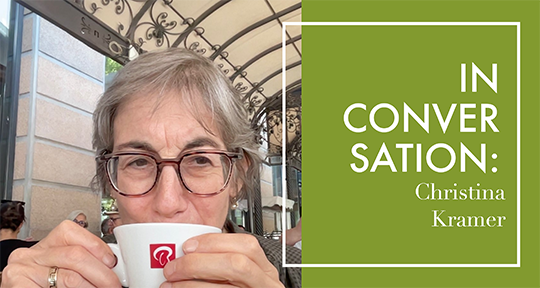Christina Kramer is a writer and translator known for her prolific work introducing Macedonian literature to the Anglosphere. I had the pleasure of corresponding with Christina about her role as a translator and linguist, the interplay between these two professions, and the excerpt of Lidija Dimkovska’s Personal Identification Number, which recently appeared in Christina’s translation in Asymptote. Throughout the conversation, we touched on Christina’s fascinating translation process, her love of Balkan music, her collaborative poetry translation, and the increasing number of translations coming from Macedonia.
Sarah Gear (SG): I very much enjoyed your translation in the current edition of Asymptote, an excerpt from Lidija Dimkovska’s 2023 novel Personal Identification Number. As an overworked parent of three, I can absolutely see the appeal of the ‘wasteland’ the narrator describes! Can you tell me how you came to translate the excerpt, and what challenges were specific to the text?
Christina Kramer (CK): I first learned about the novel from Lidija in 2022, then received a copy from her when we were both in Skopje in 2023. I was somewhat reluctant to translate the book because I saw many difficulties in moving between the narrative sections about Katerina and her family and the sections describing the wasteland. I knew virtually nothing about the Turkish invasion of Cyprus. Then, last summer I ended up working intensively on a full translation so it could be presented at the Frankfurt Book Fair. I will be editing that draft, of course, but I was forced to push through, to make quick decisions, and with that intensive, compressed timeframe, I was immersed in the story, and what had seemed difficult became more natural.



